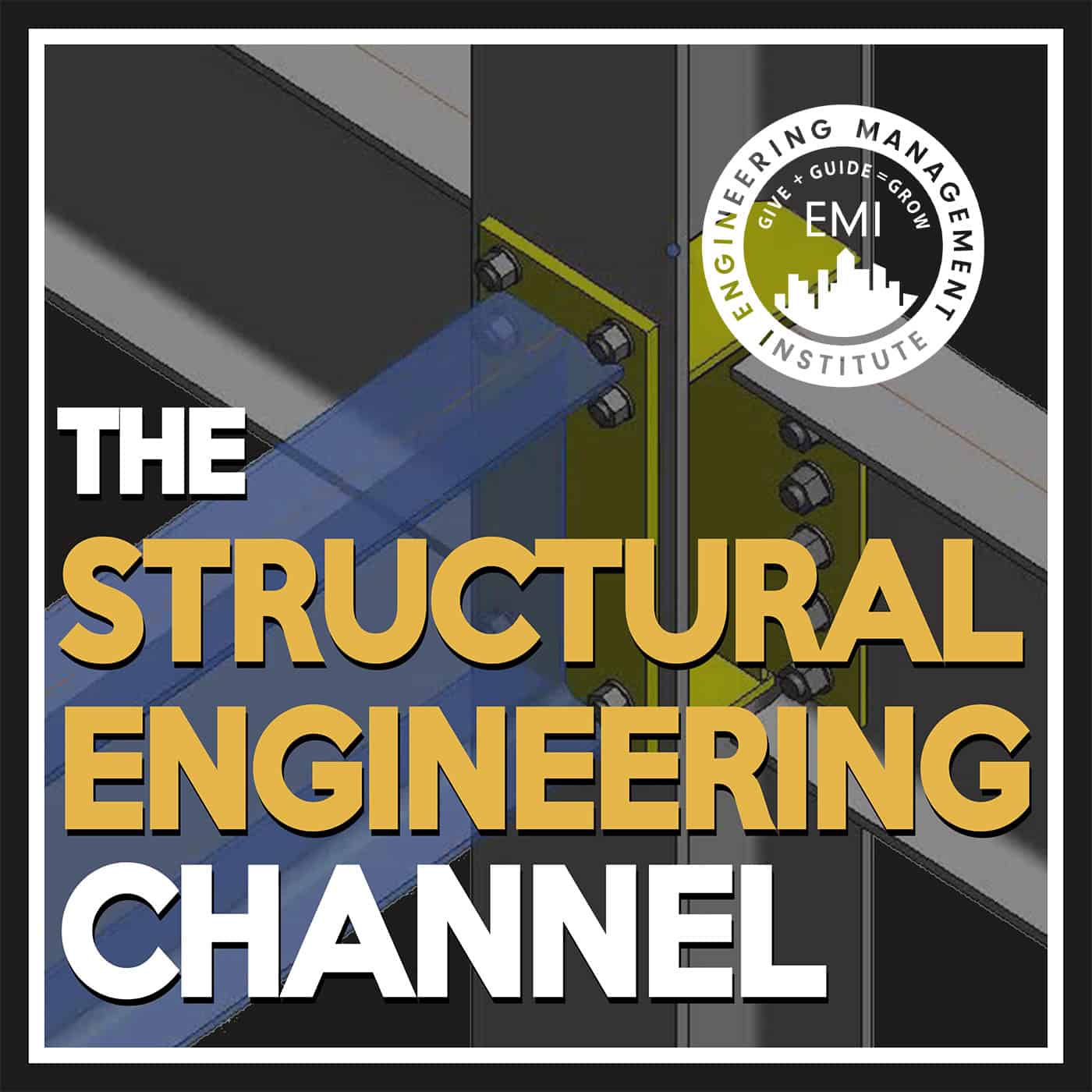TSEC 127: How Technology Is Revolutionizing Bridge Monitoring Systems
Description
In this episode, we talk with Ishwarya Srikanth, Ph.D., P.E., A.M.ASCE, structural engineer at EXP, about innovative advancements in bridge monitoring systems, the integration of machine learning in asset management, and the unique challenges faced in offshore structural engineering.
***The video version of this episode can be viewed here.***
Engineering Quotes:
Here Are Some of the Questions We Ask Ishwarya:
What motivated you to pursue a Ph.D. knowing it would be a lengthy process, and how did you decide between pursuing a Ph.D. versus entering the industry?
How was the transition from academia to industry for you, considering it can be tough for many people, and how did your academic experience impact this change?
Was your research based on offshore topics, or did that come later?
Could you please elaborate on your Ph.D. research and its potential benefits or advantages for the industry?
Was pursuing your Ph.D. a daunting experience, and what were your thoughts as you approached it?
When starting your research for the Ph.D., you can explore a broad scope, but how do you condense it effectively to complete the Ph.D.?
Does the process of obtaining your Ph.D. feel like you're proving yourself or more like a confirmation that you're fully prepared and ready?
What aspects of offshore structures interested you during your master's program, and why did you choose this field of study?
Are offshore structures primarily oil platforms located in the middle of the ocean, or are there other main types of structures involved?
Did you study machine learning during your Ph.D., and what can newcomers learn from artificial intelligence (AI) and machine learning?
Does the prediction of a specific bridge's deterioration based on similar parameters from various bridge data involve using machine learning rather than a specific equation?
How difficult is it for an engineer to learn machine learning, and can it be picked up mainly through online courses without extensive programming skills?
Could you share how you balance your Indian classical vocal training and education pursuits with other activities?
Do you have any final advice for structural engineers in their careers?
Here Are Some of the Key Points Discussed About How Technology Is Revolutionizing Bridge Monitoring Systems:
Ishwarya was driven to pursue a Ph.D. after her master's because of the fulfilling experience she had during her thesis research. She excelled in her chosen topic and enjoyed the process of solving complex problems. When deciding between a Ph.D. and entering the industry, Ishwarya was drawn to the academic path due to her passion for research and knowledge advancement. She chose to pursue a Ph.D., prioritizing her interest in academia over potential industry opportunities.
The transition from academia to industry posed challenges for Ishwarya, particularly in adapting her problem-solving style. Academic work emphasizes detailed research, whereas industry demands practical, results-oriented approaches. Ishwarya's academic background equipped her with a strong foundation in theory and concepts, which was instrumental in her adaptation to the industry environment.
Ishwarya's research during her Ph.D. was centered on bridge monitoring systems with a focus on deterioration modeling, which focused on infrastructure management and maintenance, rather than offshore topics.
Ishwarya's Ph.D. research on bridge deterioration modeling aims to help the industry by developing predictive models for bridge condition changes over time. These models assist infrastructure managers in prioritizing maintenance and allocating resources efficiently, ultimately reducing costs associated with reactive maintenance.
More Episodes
In this episode, we talk with Ryan Jeansonne, P.E., civil structural engineer at Titan Delta, who shares powerful insights on mentorship and continuous learning in engineering, inspiring both new and seasoned professionals to take bold, impactful steps in their careers.
***The video version of...
Published 11/14/24
Published 11/14/24
In this episode, we speak with Farshad Mirshafiei, Ph.D., P.Eng., CEO and co-founder of Sensequake, about how advanced technologies are transforming structural assessments and redefining safety and infrastructure resilience in buildings and critical systems.
***The video version of this...
Published 10/31/24


